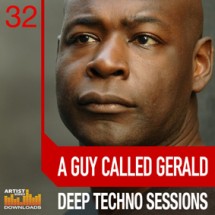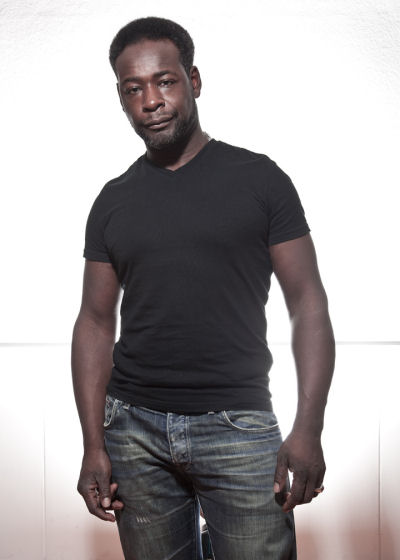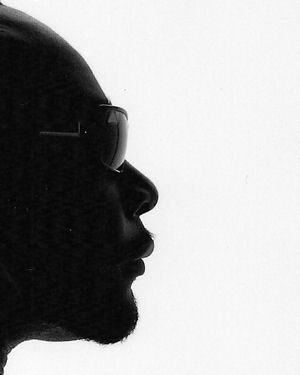| A few minutes with A Guy Called Gerald... | |
 |
Time+Space 7th June 2010 Weblink |
 A few minutes with A Guy Called Gerald.. Monday, June 7, 2010 Since the 80’s, Manchester UK native, A GUY CALLED GERALD, born Gerald Simpson, has proven to be among the most innovative modern music figures. His influence is international and has spawned new genres of music culture. From his early experimentation with Techno and Acid House to his groundbreaking contributions to Drum 'n' Bass music, AGCG’s music has evolved regardless of his individual successes in each of those genres. Inconjunction with Loopmasters, Gerald recently released a sample collection as part of the popular Artist Series 'Deep Techno Sessions'. Here, Gerald tells us about the creation of that sample collection and his music production 'toys' and techniques... Hi Gerald, so how did you become involved with Loopmasters and the Artist Series? I got involved with Loopmasters because I felt it was the perfect way to communicate sounds and I wanted to encourage the Dance Music Producer. Of late I've not heard so much music from Dance Music Producers.... only stuff from DJ/Producers. Some of you probably didn't even know there was a difference. OK ... DJ/Producer History 101 : In the late 80's these characters would turn up to the studio armed only with a box of tunes and would have to rely on the skills of the studio engineer to import the beats and samples from vinyls and then the engineer would also have to loop them. Most of the time he would be tricked into actually making the entire track for the DJ "Producer". Dance Music Producer History 101: This character had a curious ear and was not shy to experiment. Most probably had their own setup at home. They probably had cheap drum machines/synths and would only go to a recording studio to add gloss to their production. The DJ Producer multiplied as the low end production tools were oriented around them. They produced tracks that made it easier and easier for him to beat match and the soul of the music was diminished. The DJ Producer were just making DJ Tools and not completed finished songs. The Dance Music Producer all but disappeared apart from a few whose music was rebranded as "intelligent". I felt I had something to offer from the Dance Music Producer side of things.  Once the deal was done, how did you approach the task of putting together the sample pack? What I did was to extract bits from my normal production day but over a very long period of time. Which software and hardware was particularly key to the creation of the collection? It was such a long period of time it's hard to recall the source. I have such a diverse plethorer of sources available by todays standards but at the centre of my system is Reason by Propellerheads. What other software and hardware do you use when making music? Nowadays the only hardware I need is my body. Can you imagine I started my life as a producer in my late teens. I had complete freedom to take my time with everything. Luckily for me because midi was too expensive we had to rely on DIN Synch and also CV&Gate and tape editing and had to make every groove note-by-note. That was my world for the first 10 years of production. I think there is too much emphasis on gear - we used to abuse the gear because it was so cheap. Now people spend so much money on analog stuff they are too scared to really use it and abuse it the way we used to. How different, if at all, was producing the sample pack compared to creating a track? It was not as I expected. I have always created sounds for my own library literally for over 25 years. In the old days I used 3.5" floppy and then when DAT was invented I would buy 120 min DATs and spin everything I had recorded on my analog 2" tape machine onto my DAT. It was very cost effective and I would always develop new ways to recycle old sounds. So I kind of used my old way and rolled some loops off during production. But now it is a lot simpler - I just have to export loops; I love it. But sometimes I do over complicate things for myself. Your message within the product description for 'Deep Techno Sessions' says 'The sounds herein contain patterns that create specific air movement sequence in each atmosphere used at the correct pressure.' Please could you explain this further? Using a studio that is built around a Hemi-Anechoic Chamber system makes it easier to position not only where I want the sound to travel to but also how its frequency changes over time. I'm not sure how I can clearly explain this in DJ language...  A Guy Called Gerald: Your new album 'Tronic Jazz The Berlin Sessions' was released earlier this month and according to your website 'was an experiment delving into a world of the soft synth to find ways to sculpt analog sounds from digital waveform.' What was the inspiration behind this? I have friends who never heard the original techno sound and they only know Ableton and Logic. I was curious as to how most managed to get the same sound as each other considering the versatility of these programs so I restricted myself to a program some people call a toy: Reason. It's basically a closed system as far as VSTs and such are concerned. But I find it is a solid base for building ideas and executing sound experiments. Don't forget I did my first albums and I actually built all my own studios from scratch from day one - pre-midi and pre-computer. All for the love of this electronic music. So the sound from Detroit that planted the bug in my noggin and which was instrumental in the inspiration of the software developers steered me into creating Tronic Jazz. I wanted to show that you didn't need these original machines to make this music - you just need your ear. As a result, what did you learn (if anything) from making this album? I learnt I must be an alien from another dimension. I don't know how I got here. I was in the studio when they asked me to share what I was quietly doing for my own indecent entertainment. Your album tour is due to be announced soon. What is likely to be your typical live set-up for this? I'm not the Chemical Brothers with loads of flashing lights. I keep it real. I use a DJ mixer and two laptops and a keyboard controller: it's very simple. I try to be low maintenance for the clubs. All I usually need is a surface to put my minimal gear and a stereo input to the P.A. This should be easy for even the low-fi-est of venue. It is funny - sometimes I get to the club and they look at me like I want them to rebuild their club around me and all I want is a table! Finally, what's your top production tip for our music producing customers? All sounds are raw and need your individual attention. There are no finished sounds. You are free to experiment - there's nothing wrong in music. You have more ways to manipulate sound than ever. Make the sounds yours. [Author: TimeAndSpace] |
|